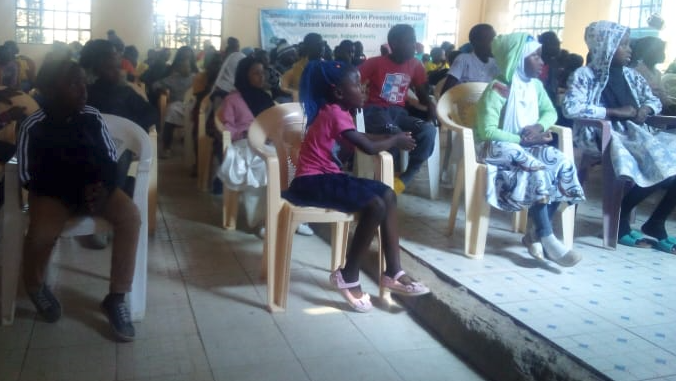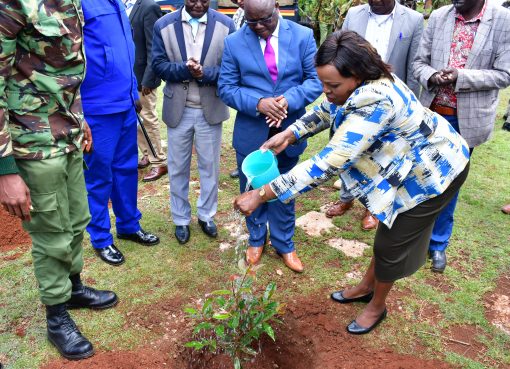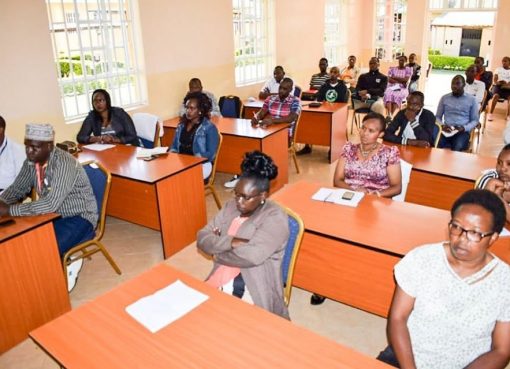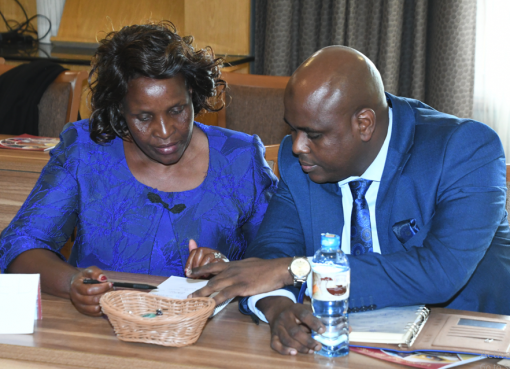A non-governmental organization is working with the United States Embassy to train children as early as eight years old on their rights on matters Sexual Gender Based Violence (SGBV).
Engage Jamii Initiative with the support of the United States Embassy is training the children and the society at large to know and understand their rights as they mature to equip them with skills to defend their rights.
It is to this effect that “Our children are at risk of being sexually violated thus it is important to let them know the signs of perpetrators and how to go about safeguarding the evidence after rape cases and we hope that when they go back to school, they will share the information with their peers so that we have a safe environment for our children,” said Fatuma Gedi, Engage Jamii Initiative director.
The children drawn from Majengo area in Kajiado which has many SGBV cases were taught about sexual abuse and warned against indulging themselves in drugs as it is one of the factors which leads to sexual abuse.
The teenagers, especially the girls were warned on befriending their male relatives as well as friends as SGBV cases do happen mostly within relatives and friends.
The kids were also warned against accepting lifts and gifts from strangers which often result in cases of rape which leads to low self-esteem and suicide.
She revealed that parents will also undergo a similar training as their motive is to make the community understand the consequences of violating each other’s rights.
“We want to create an enabling environment for everyone to live without the fear of being raped or sodomized and without the fear of our children being defiled,” said Gedi.
She says in Kajiado, girls get married at a younger age due to culture and the situation worsened during the COVID-19 pandemic.
Gedi notes that there was a surge in teenage pregnancies during the pandemic and coming up with such a program to help both boys and girls to behave responsibly and be each other’s keeper.
She also added that children should report cases to reliable persons who will report to the authorities and the due procedure followed.
“The data in hospitals and police stations vary because most SGBV victims don’t report such cases to the police. Most run to the hospital before reporting the cases to the police for action to be taken against the perpetrators,” added Gedi.
The organization undertook a similar training in Mombasa, Likoni and Kawangware.
By Veronica Seeto and Diana Meneto





